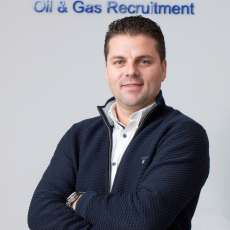Oil & Gas Recruitment specializes in offshore manpower supply, mainly for the oil and gas industry. The company handles requirements for permanent, temporary and contract placements and makes its services available to an international client base.
Can you briefly introduce Oil & Gas Recruitment and highlight the opportunity in the Romanian market that led to the company’s creation?
The company was founded 10 years ago, the premise being our desire to bring more Romanian and generally Eastern European people into the offshore activity. The initial focus was exclusively on oil and gas but with time we have expanded our work into the renewable sector as well.
When we initially started out there were no other recruitment companies specialized in this area and we saw it as a good opportunity to fill in the gap, especially since myself and the co-founder of the company were carrying an experience in the oil and gas field that spanned over 12 years. The challenge initially was to establish the right international contacts but we managed to grow steadily and access projects in the North Sea, West Africa, Brazil - areas that have traditionally been very active in offshore exploitation. Four years ago we also became involved in the Black Sea projects, which we hope will see a good evolution going forward.
Romania is one of the oldest players in the world in terms of onshore exploitation, but a fairly recent one when it comes to offshore. Was it challenging to identify the necessary skills among the Romanian workforce?
It was not necessarily a difficult process but it did take some time to set everything in place. We had to go through a phase of adapting the workforce and as a company we made a direct contribution to developing the appropriate skills. We started by making available training courses, initially sourced from international companies, and eventually the educational entities in Romania have included dedicated courses in their curricula. One example is the Maritime University in Constanta, where I am a teacher, that developed courses meant to prepare officers and auxiliary personnel for offshore drilling activities.
Presently Romania boasts a highly skilled workforce in the offshore field. One thing that contributed to this was the fact that salaries are very competitive and this motivated people to join the offshore sector, even if it meant overcoming barriers such as language or financial requirements (many workers have paid for the specialization courses themselves).
What are the skills that you are looking for with priority, as applicable to the variety of clients’ needs?
We seek a variety of skills such as drilling, engineering, subsea security, IT, catering and third party services. We started out by identifying the necessities in the market and afterwards looked at what was already available among local workers. Romania is very strong in terms of technical competences, like mechanics, engineers and electricians and this background made it easy to convert their skills to what was needed in the offshore activity.
One key element is that we are looking for people with English language capabilities - the majority of the know how and technology in the offshore segment is sourced from the United States, so the terminology used is typically in English. The same is valid when it comes to industry experts and upper management, which tend to be people from countries with long offshore traditions like the United States, United Kingdom or Scandinavia. Finally, it is common for offshore platforms to have on board more than 30 different nationalities at the same time and a common language is essential for effective collaboration.
Workforce has been highlighted as one of the main challenges faced by the energy industry in Romania. What do you see as the main causes for this?
There is an abundance of trained personnel that left Romania in recent years and this affected all industries. Referring specifically to oil and gas, the crisis that the industry has gone through in recent years has affected the workforce severely in the sense that many specialists decided to shift to other industries. Training companies have also reduced their activity given these circumstances.
This means that we are currently at a point where we need to rebuild the workforce and this is done through re-establishing training courses, converting people from other industries and attracting workers from neighboring countries, such as Bulgaria. One challenge we are noticing is that we do not have available locally workers with management level expertize - one focus area is therefore to nurture the talent and prepare people for these higher levels.
How do you expect the labor market to evolve in Romania in the coming three to five years and how does Oil & Gas Recruitment plan to adapt?
I expect the shortage of specialized workers will continue for a while, as there is still need to recover from the crisis I have mentioned. But if the industry continues to grow, as the current circumstances indicate, it is likely to see more people coming back of converting to this industry.
Our goal is to continue developing the local workforce so that we can meet the needs associated with the Black Sea projects that are underway. We also want to expose Romanian workers more to international markets and we are looking with priority at regions with tradition in the offshore field, such as the United States or Scandinavia. Another area of development for us consists in renewable energy - Romania has not yet developed offshore wind parks but it is likely that this will happen more and more going forward. We see great opportunities here and we are already making efforts to identify the right partners and resources.






